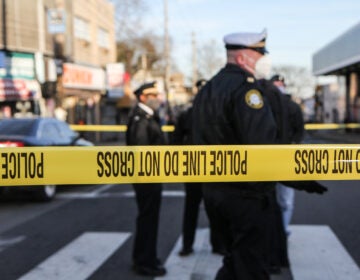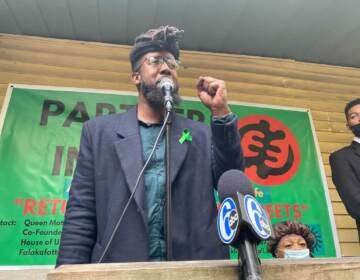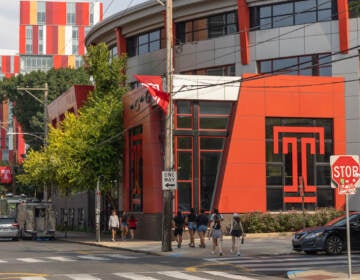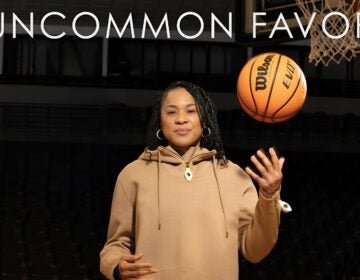After Temple student’s shooting death, more policing, community partnerships on the table
One local lawmaker said he and parents agree that “the only way to keep Temple students safe is to make sure that everyone is safe.”
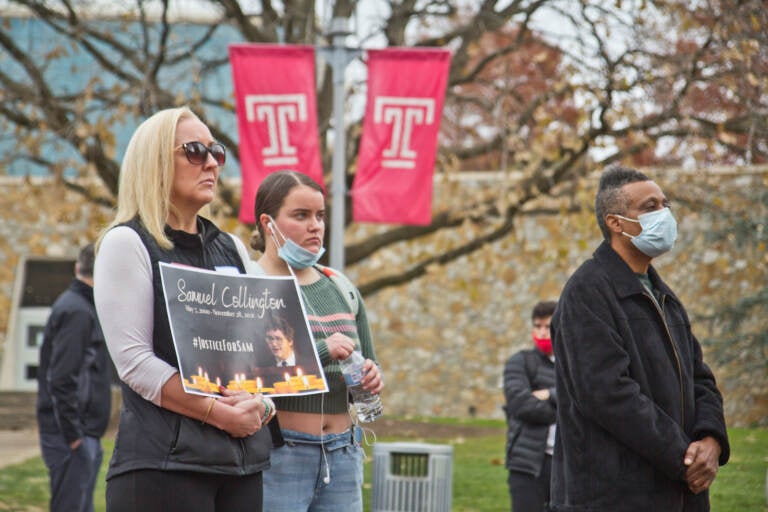
Parents of Temple students held a rally on the University’s campus to demand more safety measures, including training for students on how they can keep themselves safe, and increased police presence on Dec. 6, 2021. (Kimberly Paynter/WHYY)
After 21-year-old Temple University student Samuel Collington was fatally shot during an attempted carjacking, a group of parents is hoping to make the campus and surrounding neighborhoods safer.
They met Monday morning with Temple student government representatives, and have also been in touch with University President Jason Wingard about what the school can do to protect students.
During a rally on campus shortly after, Virginia Jorgensen, mother of a Temple senior who has become the spokesperson for the ad hoc group of parents, said many of them didn’t think “their students would encounter the escalation in violence. And it really has escalated over the last two years.”
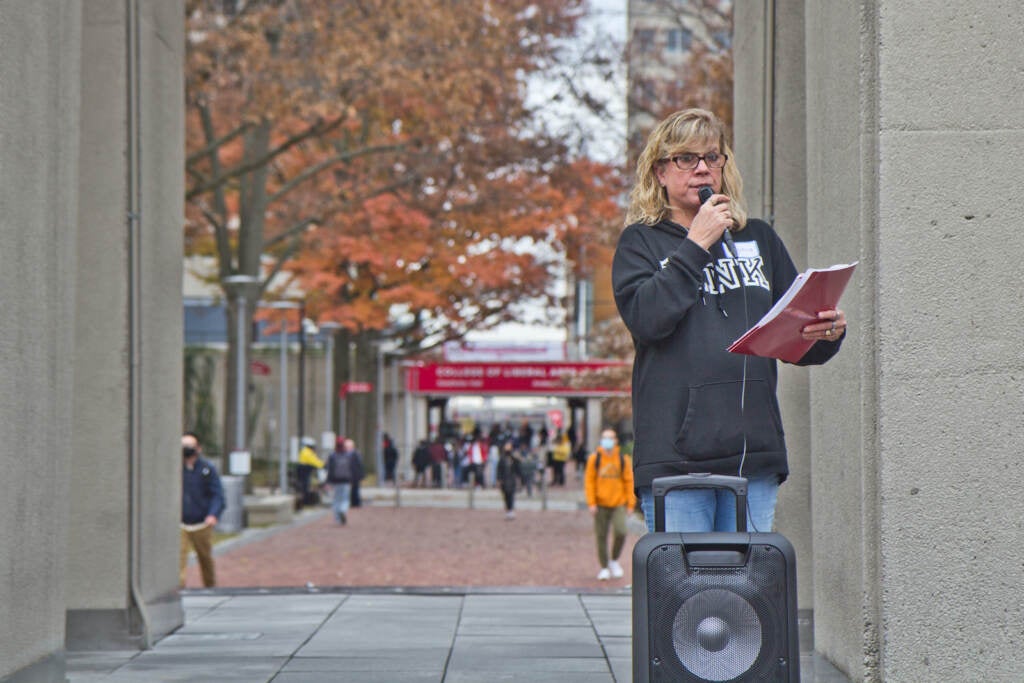
At least 521 people have been murdered in Philadelphia so far with less than a month left in the year, more killings than the city has seen since 1990. The vast majority of the victims are young Black men.
Jorgensen said Wingard had his own list of proposals — most significantly, increasing the size of Temple University campus safety personnel by 50%, and working with Philadelphia police to increase their presence in neighborhoods off campus.
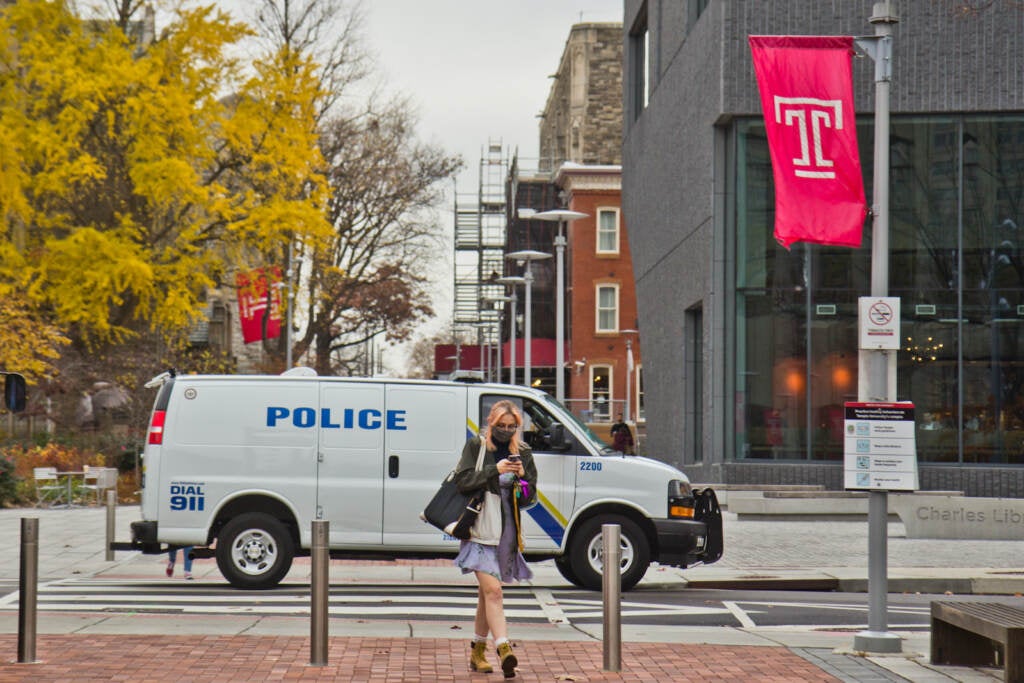
She noted these aren’t yet detailed plans — merely proposals. Others include increasing campus shuttle services and requiring students to take safety training.
Jorgensen said students had also proposed introducing mental-health-focused first responders, who could deal with certain issues in lieu of police. She noted any solution needs to be in concert with the North Philly community.
Jorgensen and the other parents don’t want to wall Temple off.
“That would take away from being here,” she said. “That would take away from the experience of being in an open campus, and being able to walk around the city and enjoy the things the city has to offer.”
State Sen. Sharif Street (D-Philadelphia), who represents Temple and its surrounding neighborhoods, said he understands how parents feel. His nephew was killed this summer in a West Philadelphia shooting, and he has a niece at Temple now.
“The gun violence doesn’t have any boundaries,” he said. “It’s affecting people whether they live in the neighborhood or on campus … We really do have a lot of work to do.”
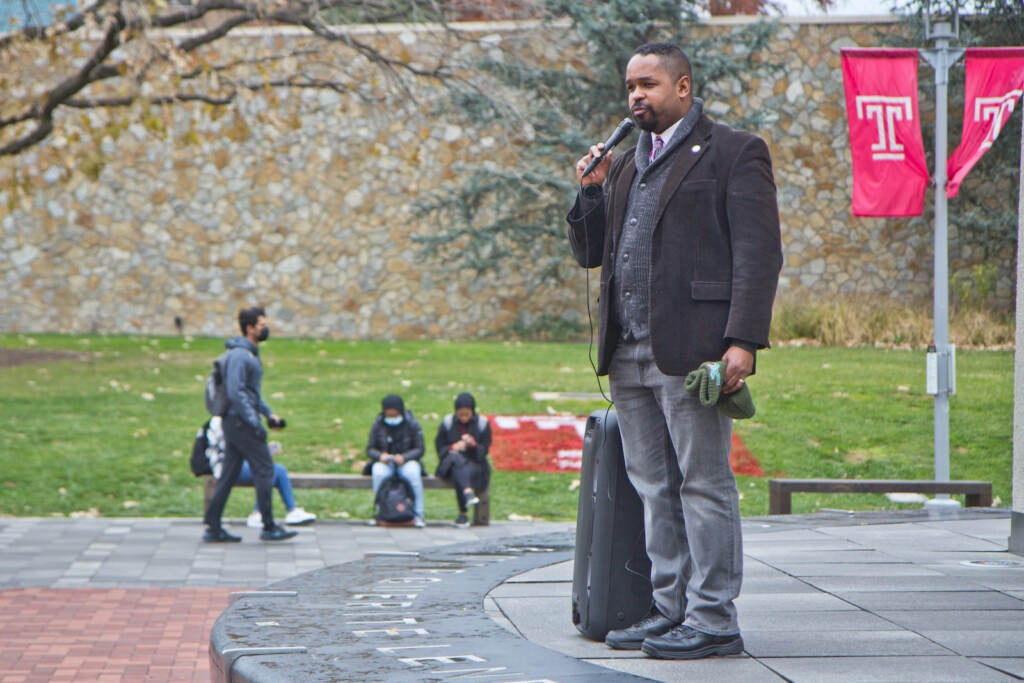
He said in past eras of Temple leadership, he has seen knee-jerk reactions to violence, in which parents and administrators sought to separate campus from the rest of Philly. The fact that Jorgensen and other parents are now proposing the opposite, he said, is good news.
“It never worked. It would work even less now because the school has grown, it’s become more integrated in the community,” he said, adding that he thinks integration with the community was inevitable.
“It’s a part of why kids come to an urban school … When they come to Temple, they want to come to Philadelphia, and the only way to keep Temple students safe is to make sure that everyone is safe.”
Street noted that several gun control bills he thinks could help address shootings are stalled in the Republican-controlled state legislature. He can’t offer any promises that they might move soon, but said community engagement is still a good step.
Radee Hammett thinks so, too. He works for Philadelphia CeaseFire, and says while the group has always had a strong relationship with Temple — and is funded in part by Temple’s School of Medicine — there is always room for more connection.
“One of the things I think we should start doing, is start connecting with the block captains on the blocks where a lot of this crime is happening,” he said. “We have the opportunity to engage with a lot of the young men and women who are in the community.”
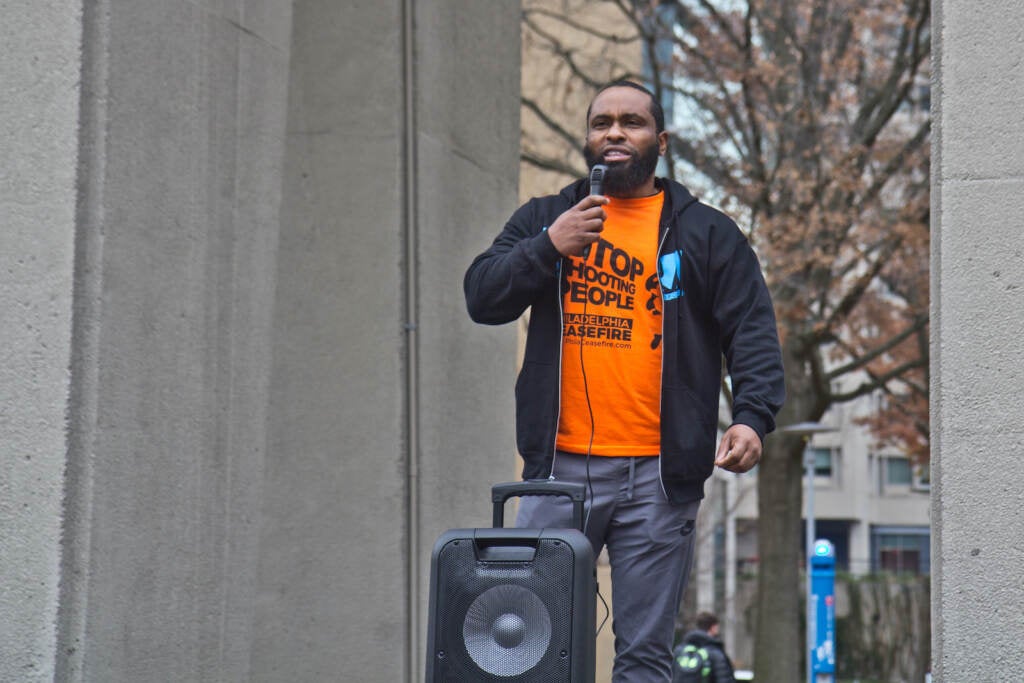
Hammett’s suggestion was well-received by the parents at the rally. As he wrapped up his speech, several asked how they could get involved with CeaseFire’s work and support the group financially.
That’s exactly what he wants to see.
“I’m just hoping that we can all not point the finger, and all come together,” he said. “I believe that if we come together that’s how we can achieve this common goal, and that’s to stop this violence.”

Saturdays just got more interesting.
WHYY is your source for fact-based, in-depth journalism and information. As a nonprofit organization, we rely on financial support from readers like you. Please give today.



